Since October 30, reconfinement has been in place nationwide to control the spread of the coronavirus. It should last until December 1, perhaps even longer.
Imperious travel is still allowed in Paris and in the big cities. Schools (with a strengthened health protocol) are open. Travel from one region to another is prohibited.
A travel authorization is required for any exit from the home (animal walks, races…).
Home delivery and take-away in Paris
On November 5, the prefecture takes a prefectural decision, applicable from the next day. It prohibits certain activities between 10.00pm and 6.00am in the capital:
- Delivery and take-away of any product prepared by restaurants, drinking and floating establishments.
- Sale of alcoholic beverages and their consumption on public roads.
- Click & Collect during this time slot
The so-called “essential” businesses that keep their doors open
- Food shops and markets (indoor and outdoor)
- DIY stores
- Motor garages
- Opticians
- Computer equipment and communication equipment stores
- Gardening
- Wholesale
- Pet stores
- Paper
- Laundries and laundries.
- Certain services (Banks, post, insurance, acting agencies)
- Factories, farms and construction
However, the closure of bookstores has raised controversy. However, they have the possibility to set up the “Click & Collect”. Customers can book and order their books by indicating times to pick them up at the store entrance. As an alternative to the American giant Amazon, other branches also practice this new trading system. They are, toy merchants, perfumers, some clothing stores, food, florists …
E-commerce
Since the first wave of the pandemic, online commerce has grown. Traders are looking for a simple and effective response to the use of technology and communication.
E-commerce represents the various commercial transactions that are carried out remotely on the Internet through digital and digital objects.
Different forms of e-commerce
1. B2B (Business to Business)
All electronic transactions of goods or services between enterprises (traditional producers and wholesalers).
2. B2C (Business to Consumer)
Establishing electronic business relations between companies and end consumers (retail section).
3. C2C (Consumer to Consumer)
All electronic transactions of goods or services between consumers. (Transactions performed by a third party, which provides the online platform where the transactions are actually performed).
4.C2B (Consumer to Business)
Very common in crowdsourcing based projects. Many people make their products or services available for purchase for companies looking for these types of services or products.
5. B2A (Business to Administration)
All online transactions between businesses and public administration (services including tax, social security, employment, legal documents and records).These types of services have increased in recent years with investments in e-government.
6. C2A (Consumer to Administration)
All electronic transactions between individuals and the public administration.
The Benefits of E-Commerce
This type of business does not necessarily require a large investment. It also allows consumers to choose without having to travel, even to the other side of the world. It’s a way to shorten the channel, sometimes delete it. This leads to an increase in the competitiveness of companies, leading to an improvement in the quality of service. In addition, there is a service facility thanks to the 24/7 opening on the Internet, as well as a decrease in transaction costs.
The Disadvantages of E-Commerce
- Lack of adequate legislation to regulate new e-commerce activities, both domestic and international
- Dependence on information and communication technologies (ICT)
- Customers cannot touch or try products);
- Loss of privacy, loss of regions, loss of cultural and economic identity of the country
- Insecurity of online business transactions.
Click & Collect, a new way of e-commerce
Since March 14 and the first wave of coronavirus, life had to stop until May 11. Traders had to find a way to sell the essentials. The Internet was the solution to continue their activity, either through a site (online payment) or on direct sale with barrier measures (payment upon delivery).
Despite the deconstruction, the French have kept the habit of buying online and it has become generalized again with the reconfinement since October 30. From November 6, the prefecture restricted deliveries and takeout, banning them between 10 pm and 6 am. Traders sell online and customers come to pick up their order or have it delivered between 6am and 10pm. Travel to make essential purchases in establishments whose activities remain authorized shall be tolerated with a travel authorization. Establishments usually open to the public leave their doors closed but can accommodate guests at the door. Contactless payment is preferred.
Click &Collect: How does it work?
- The customer visits the seller’s website. For businesses that do not have internet, online booking of products can be done on social networks, via Messenger on Facebook or instant messaging on Yellow Pages. For services such as hairdressers, make appointments online.
- He reserves his order online without being delivered
- He goes to pick up his own purchases, in store or at a checkout point, whenever he wants (no shipping costs).
This system was advocated by the government during the first wave of the Covid crisis to help maintain the economy and allow a relay of activity. Big brands have joined in order to attract their customers.
There are 2 forms of Click&Collect: “Pedestrian” (by going to remove his package on foot) or “Drive” (by going there by car.
This mode of commerce has several advantages:
- Save valuable time: you don’t have to find the product on the shelf, or stand in line ordering your couch
- Save shipping costs by getting the package when you want
- Reserve the product if it is no longer in stock immediately
For the catering, where establishments are closed, delivery platforms ensure home deliveries. Among them, we note JustEat, Deliveroo or Uber Eat… that offer a command and management software, targeted communication and marketing tools, a fleet of dedicated delivery agents (unfortunately charged at 25% of the meal for the restorer).
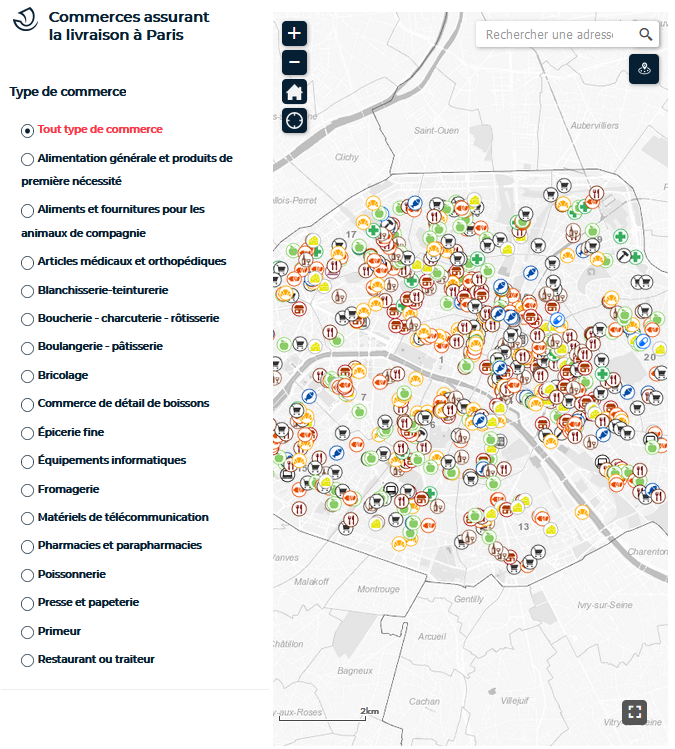
State aid
In order to avoid a new crisis after the closure of local shops, the Government has put in place enhanced support measures for:
- Cash
A strengthened and expanded solidarity fund for traders: Ready-to-wear shops, decorations, shoemakers, jewelers, florists, booksellers, hairdressers, bars, restaurants … (of less than 50 employees) could receive up to 10,000€. Tourism, culture, sport and events professionals (with less than 50 employees and a loss of at least 50% of turnover) will be able to benefit from the aid up to €10,000 per month even if they do not close. Other companies (with less than 50 employees, which have remained open but whose turnover has been reduced by more than 50% due to the health situation) will be eligible for aid of up to 1500€.
- Exemption from social security charges
For businesses. Self-employed workers have their charges suspended.
- Cancelation of one month’s rent
A tax credit for landlords amounting to 30% of rents not collected between October and December. Companies with less than 250 employees who are closed administratively or belong to the hotel, cafe, restaurant or cultural sectors and therefore traders will be able to benefit from this support measure.
- Employment support measure
Continuation of partial unemployment for traders until 31 December, with a zero-burden balance for the employer for all protected sectors or sectors subject to administrative closure such as cafes, bars, restaurants or even sports halls. Other companies will still be able to resort to partial unemployment, but with a 15% rest for the employer.
- State-guaranteed loans and direct loans
PGE until 30 June 2021, instead of 31 December 2020 originally planned. Depreciation spread between one and five additional years, with rates for SMEs traded with French banks between 1 and 2.5%, including State guarantee. Companies that have already subscribed to an EMP will be eligible for a one-year refund deferral, namely: start payments in 2022 instead of 2021. Finally, companies that do not find a solution for bank financing will be able to benefit from a direct loan from the State. The amount of this loan may amount to EUR 10 000 for companies with fewer than 10 employees and up to EUR 50 000 for companies with 10 to 49 employees depending on the sector of activity.
- Measure to support the digitization of traders and artisans
An envelope of 100 million euros will be released to speed up the digitalization of small businesses with the objective that in the end of the crisis half of the traders will be digitalized. During this new period of confinement, businesses forced to close have the right to click & collect and can thus maintain even partial activity. (The turnover achieved will not be included in the calculation of the solidarity fund to which they are entitled. This turnover will be accumulated with State aid.)
- Restoring equity between small traders and large supermarkets
Since Sunday evening, the ban on the sale of non-essential products is prohibited in supermarkets and hypermarkets from Tuesday. There was a tolerance until Wednesday to allow time for large surfaces to organize the closing of the shelves. The products concerned are:
- Cultural products
- Toys
- Textile
- Jewelry
- The decoration and tableware
- Electrical appliances
- Flowers
Hairdressers at home are subject to the same regime due to equity with the salons closed since October 30.
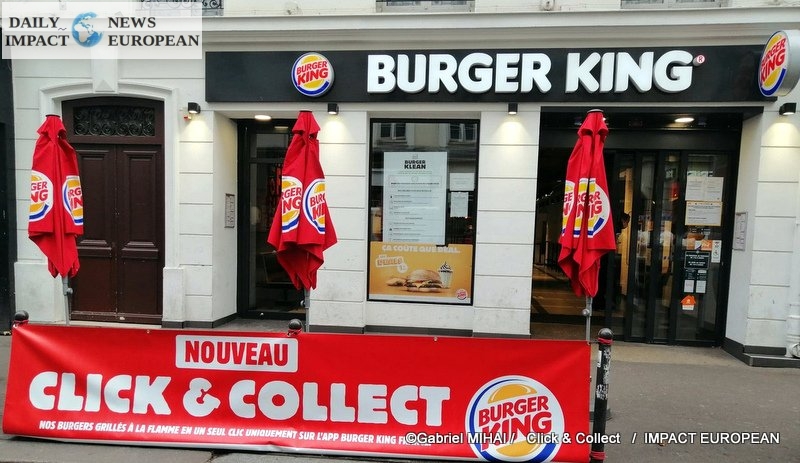
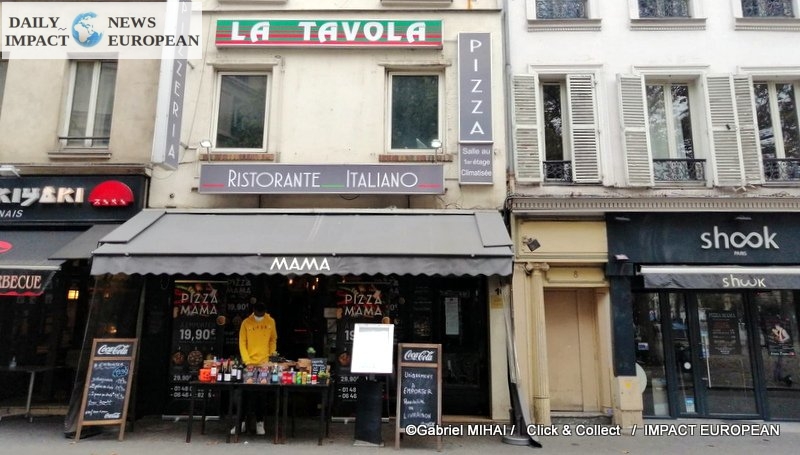
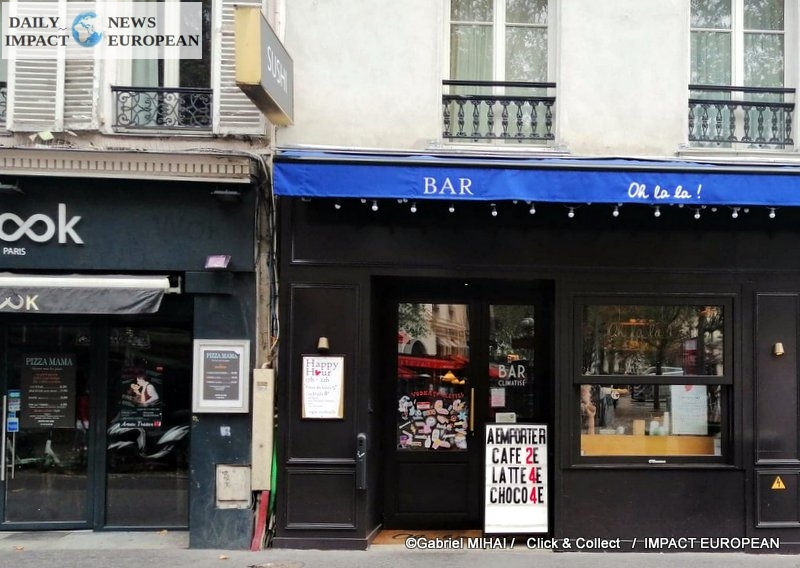
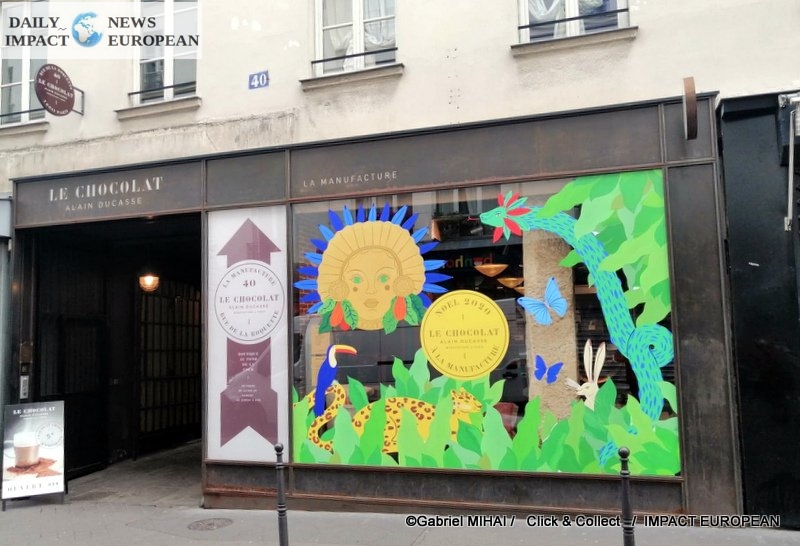
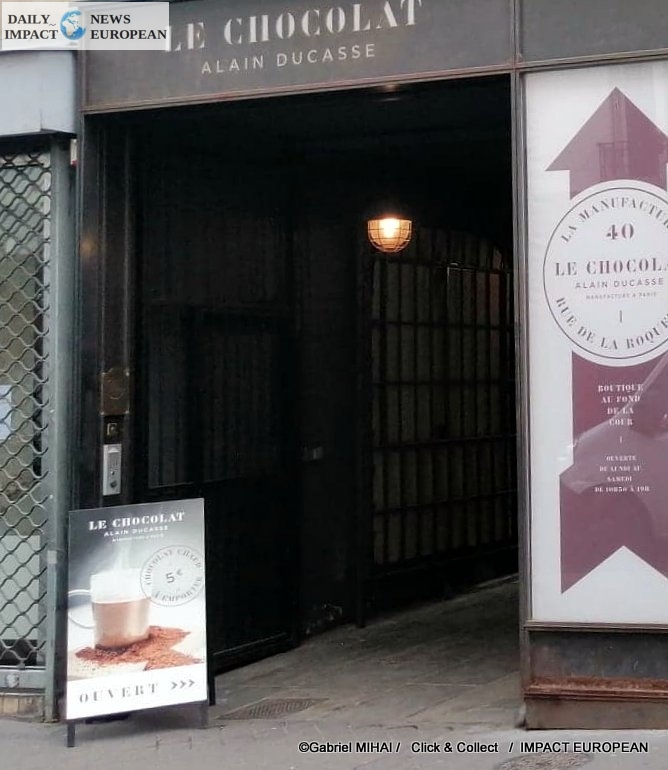
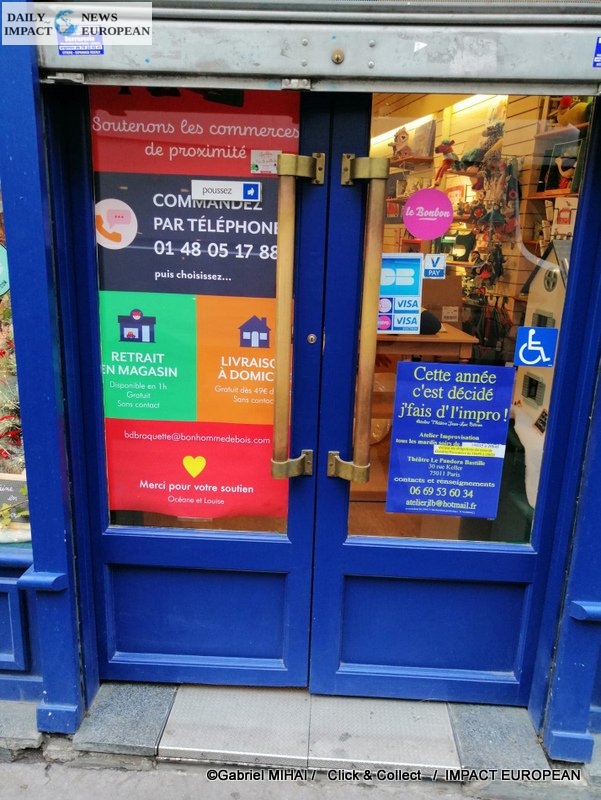
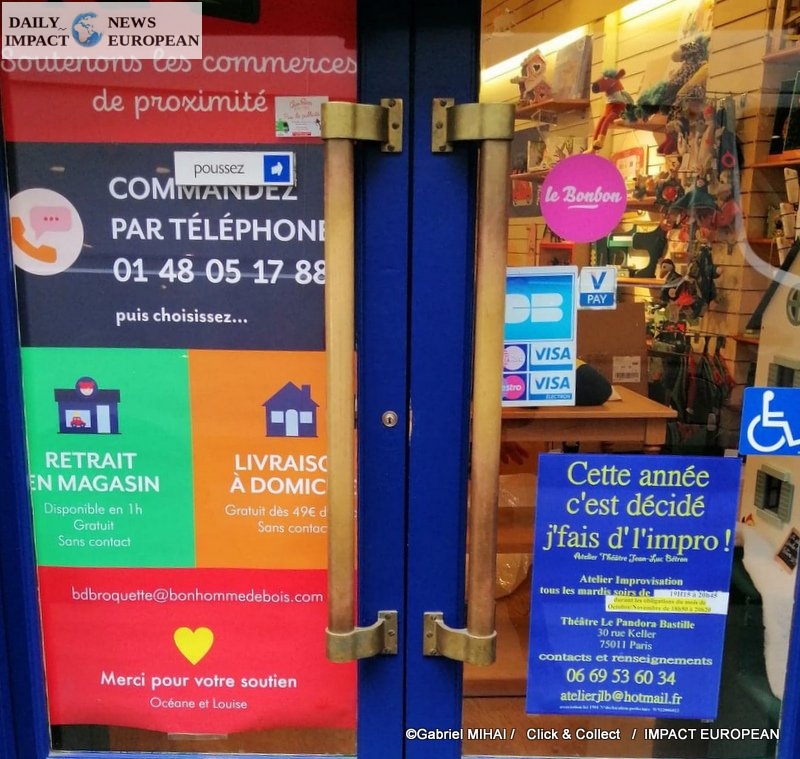
More Stories
METAL D’ALCOVE, the workshop of Eric KATZ, lighting sculptor in Montmartre
Paris Marathon 2024: Victory for Ethiopians at the Paris marathon
Gelsomina